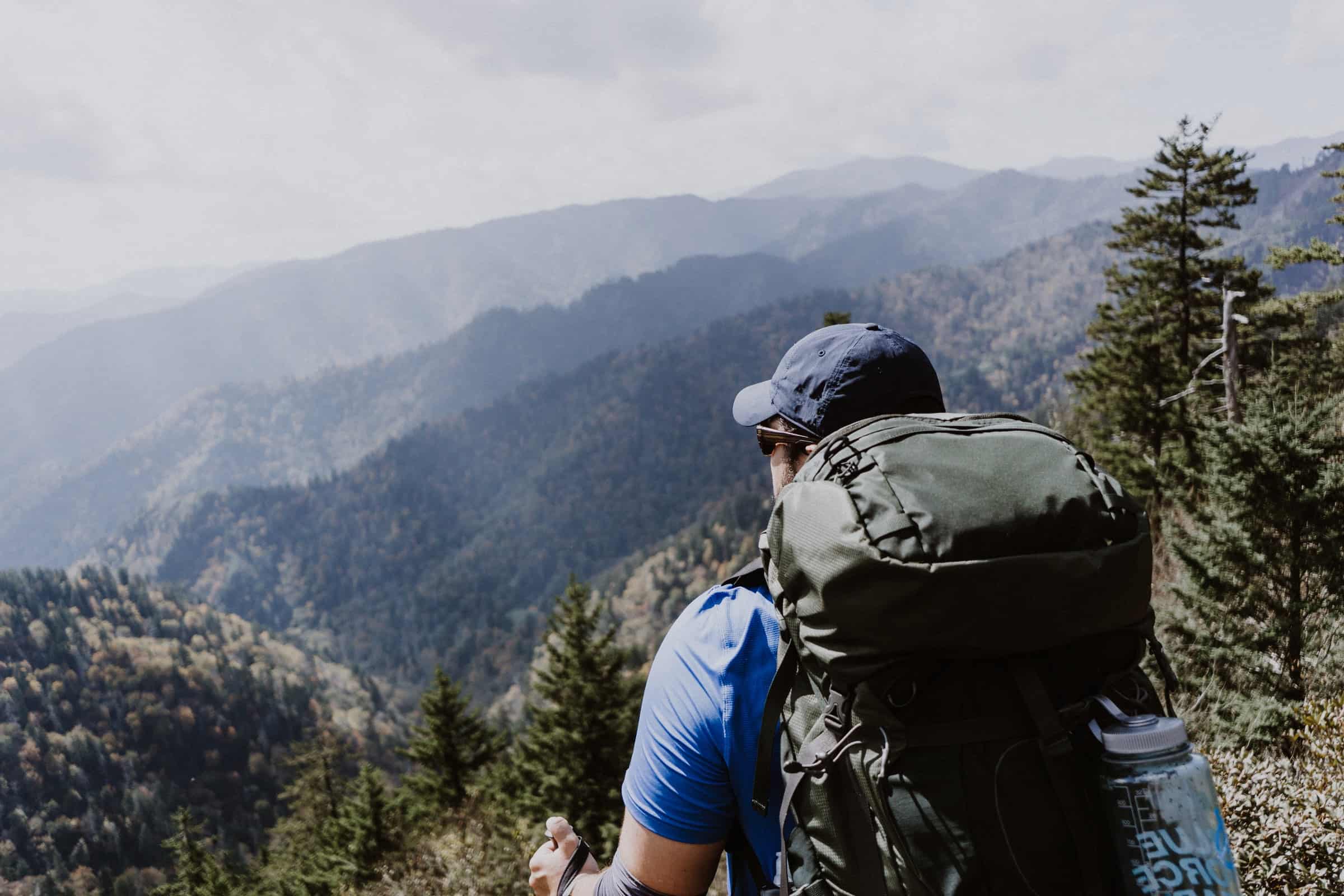Backpacking is an exciting adventure that allows you to explore the world on your terms. For first-time backpackers, however, the thought of packing everything you need into a single bag and navigating unfamiliar places can be overwhelming. Whether you’re traveling across Europe, hiking through Southeast Asia, or exploring the wilds of South America, preparation is key to ensuring your trip is smooth, enjoyable, and stress-free.
In this article, we’ll provide essential travel tips that will help first-time backpackers make the most of their journey, from choosing the right gear to staying safe and making the most of your time on the road.
1. Choose the Right Backpack
The backpack is your most important travel companion, so selecting the right one is crucial. It needs to be comfortable, durable, and functional for long periods of time.
Consider the Size and Fit
- Backpack Size: Most backpackers choose between 40-65 liters of storage space. A 40-50 liter backpack is ideal for short trips, while a 60-65 liter backpack is better for longer travels.
- Fit and Comfort: Make sure the backpack fits your torso properly. Many backpacks come with adjustable shoulder straps, waist belts, and padded backs to ensure comfort. Test it on before purchasing and ensure the weight is distributed evenly.
Why It’s Essential:
Your backpack will carry all of your belongings, so it must be durable and comfortable. Poorly fitting backpacks can lead to back pain and discomfort, which can ruin your entire trip.
2. Pack Light and Smart
One of the biggest mistakes new backpackers make is overpacking. The more weight you carry, the harder it will be to navigate long distances or climb stairs with your pack on. Plus, carrying a heavy load can lead to fatigue and discomfort.
Pack Only the Essentials
- Clothing: Stick to versatile clothing that you can mix and match. A few lightweight, moisture-wicking shirts, pants, and layers will be sufficient for most climates.
- Footwear: Comfortable, durable shoes are key. A good pair of hiking boots or trail shoes will serve you well.
- Toiletries: Only bring the bare essentials—think travel-sized shampoo, toothpaste, and soap. Many hostels provide these for you, so you may not need to carry them at all.
- Electronics: Consider carrying only the essentials, such as a smartphone, camera, and a portable charger. Remember that these items add weight, so pack only what’s necessary.
Why It’s Essential:
Packing light will make it easier to navigate with your backpack, minimize stress, and make sure you have room for souvenirs or other items you pick up along the way.
3. Research Your Destinations
Before you set off, make sure to research your destinations thoroughly. Know about the culture, local customs, transportation, and any potential safety risks. This preparation will help you avoid surprises and ensure a smoother journey.
Learn Basic Local Phrases
- Even if you don’t speak the language, learning a few basic phrases (like “hello,” “thank you,” and “goodbye”) can go a long way in creating goodwill with locals.
Know Transportation Options
- Understand how to get around in each city or region. Public transport, trains, buses, or even walking might be your primary modes of transport, so knowing schedules and routes will save you time.
Why It’s Essential:
Researching your destinations ahead of time ensures you’re prepared for cultural differences, can avoid common tourist pitfalls, and have a better idea of where to go and what to do.
4. Stay Flexible and Open-Minded
One of the main attractions of backpacking is the freedom to explore new places and experiences. However, unexpected challenges and changes in plans will inevitably occur, so it’s essential to stay flexible and open-minded.
Embrace Spontaneity
- Not every day will go according to plan. You may miss a bus, meet new people and take a detour, or decide to extend your stay in one place. These unexpected moments often lead to some of the best experiences.
Don’t Be Afraid to Change Plans
- If you find that a particular destination isn’t what you expected or you’re not enjoying it, feel free to change your plans. Backpacking is all about experiencing the unknown.
Why It’s Essential:
Flexibility will help you enjoy your trip and turn potentially stressful situations into opportunities for new adventures and growth.
5. Travel Insurance Is a Must
Travel insurance might seem like an extra expense, but it can save you a lot of money and stress in the long run. Whether you’re dealing with lost baggage, illness, or an accident, having proper travel insurance ensures you’re covered.
Key Coverage Areas
- Medical Expenses: Especially important if you plan on engaging in any adventurous activities, such as hiking, diving, or biking.
- Trip Cancellations or Delays: If a flight is delayed or canceled, insurance can cover any lost costs.
- Lost Luggage: Many travel insurance plans will help you cover the costs if your bags are lost or delayed.
Why It’s Essential:
Unexpected events happen when you’re traveling, and travel insurance can provide peace of mind knowing that you’re covered in case of an emergency.
6. Stay Safe: Trust Your Instincts
While backpacking can be an incredible experience, it’s important to prioritize your safety. Use common sense and always trust your instincts when it comes to new places and people.
Avoid Risky Situations
- Stick to well-lit areas at night, keep your valuables secured, and avoid walking alone in unfamiliar places.
Use Hostel Lockers
- Many hostels provide lockers where you can safely store your valuables. Always lock up your passport, money, and other important documents when you’re not using them.
Why It’s Essential:
Safety should always come first. Trusting your gut and staying vigilant can help prevent potentially dangerous situations and allow you to focus on enjoying your adventure.
7. Take Care of Your Health
When backpacking, staying healthy is essential to keep the momentum going. It’s easy to become dehydrated or fatigued when on the road, especially with the unpredictable nature of backpacking.
Stay Hydrated and Eat Well
- Drink plenty of water, especially in hot climates, and try to eat a balanced diet. Local street food can be delicious, but make sure it’s from a reputable source to avoid getting sick.
Pack a Basic First Aid Kit
- A small first aid kit with bandages, pain relievers, antiseptic wipes, and any personal medications can be a lifesaver in case of minor injuries or illnesses.
Get Vaccinations
- Depending on your travel destination, you may need specific vaccinations or health precautions. Consult your doctor before your trip to ensure you’re properly vaccinated.
Why It’s Essential:
Maintaining your health while traveling is crucial for staying energized, avoiding sickness, and being able to fully enjoy your backpacking experience.
8. Connect with Fellow Travelers
One of the best parts of backpacking is the community. Many backpackers share similar goals, and connecting with others can lead to lifelong friendships, shared experiences, and travel tips.
Use Social Media and Forums
- Join online communities or apps like Couchsurfing, Facebook travel groups, or Hostelworld, where you can connect with fellow travelers and get advice about destinations or share itineraries.
Be Open to Meeting New People
- Whether it’s at a hostel, café, or local bar, be open to striking up conversations with other travelers and locals. Backpacking is a social journey, and meeting new people can enhance your trip.
Why It’s Essential:
Connecting with others can offer valuable insights, help with logistics, and create lasting memories. Plus, you never know when a fellow traveler can be your companion on your next adventure.
9. Stay Organized
Backpacking can be hectic, but staying organized will make your trip easier to navigate. Keeping track of your belongings, finances, and itinerary ensures that things run smoothly.
Use Packing Cubes or Compression Bags
- These organizational tools help keep your clothes, gear, and toiletries neatly packed, making it easier to find what you need without emptying your entire bag.
Keep Track of Important Documents
- Make digital copies of important documents like your passport, travel insurance, and flight tickets. This can be helpful if anything is lost or stolen.
Why It’s Essential:
Staying organized reduces stress and ensures that you’re able to find everything you need quickly. It also helps prevent losing valuable items.
10. Respect Local Customs and Environments
Respect for local cultures, traditions, and the environment is essential for responsible backpacking. By understanding and respecting local customs, you can enrich your experience and leave a positive impact.
Respect Cultural Norms
- Learn about local customs, dress codes, and etiquette to avoid inadvertently offending locals. For example, in some countries, it’s respectful to cover your shoulders when visiting temples.
Support Sustainable Tourism
- Practice eco-friendly habits such as reducing waste, supporting local businesses, and minimizing your environmental impact by staying on marked trails and avoiding litter.
Why It’s Essential:
Being respectful of local cultures and the environment not only enriches your experience but also helps ensure that the places you visit remain beautiful and intact for future travelers.
Conclusion
Backpacking for the first time can be a transformative and rewarding experience, but it requires careful planning and preparation. By following these essential travel tips, you’ll be able to travel with confidence, minimize stress, and fully immerse yourself in the adventure. Remember, the most important part of backpacking is to have fun, be flexible, and embrace the new experiences and opportunities that come your way. Safe travels, and happy backpacking

